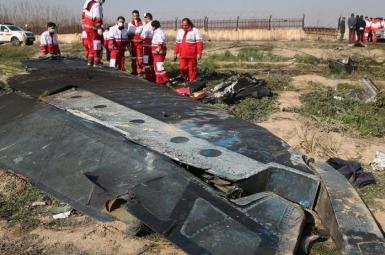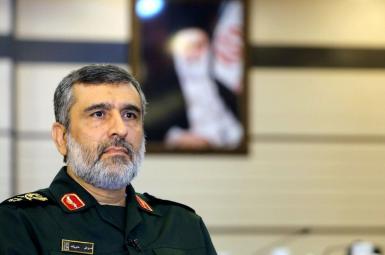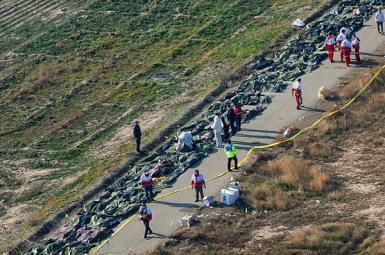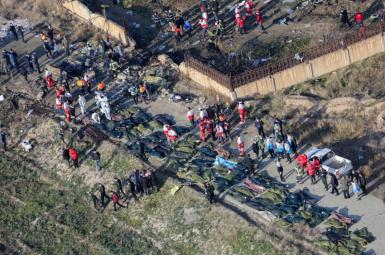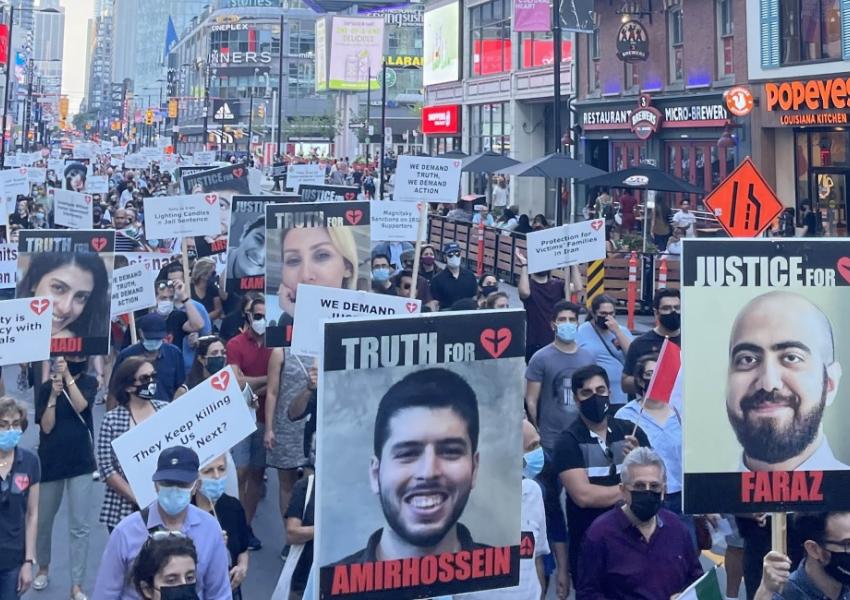
Toronto Marchers Demand Canada Take Iran to World Court Over Downed Flight
Hundreds marched in Toronto Thursday to demand the Canadian government pursue Iran’s downing of Ukrainian Airlines light PS752 in January 2020 at the International Civil Aviation Organization (ICAO) and launch a case at the International Court of Justice. The march and rally, going from Toronto's Queen's Park to Nathan Philips Square, was organized by the Association of Families of Flight PS752 Victims (752AFV) and included members of the Canadian parliament.
"Justice is not negotiable," Hamed Esmaeilion, Canada-based spokesman of an association representing some of the families of Iranian victims of the disaster, said in a speech. "We demand [the Canadian government] to launch a criminal investigation, end negotiations [with Iran] and take the matter up with ICAO…We will return to this square after a few weeks with more people if our demands are not met." He accused ICAO of "total indifference" and said it had produced "neither condemnation, nor investigation or punishment of the culprits".
ICAO is a United Nations agency that adopts standards and protocols for air navigation and sets protocols for accident investigations. It does not itself routinely carry out investigations and is not a judicial body. The International Court of Justice is the UN’s judicial body, which arbitrates in disputes between member states.
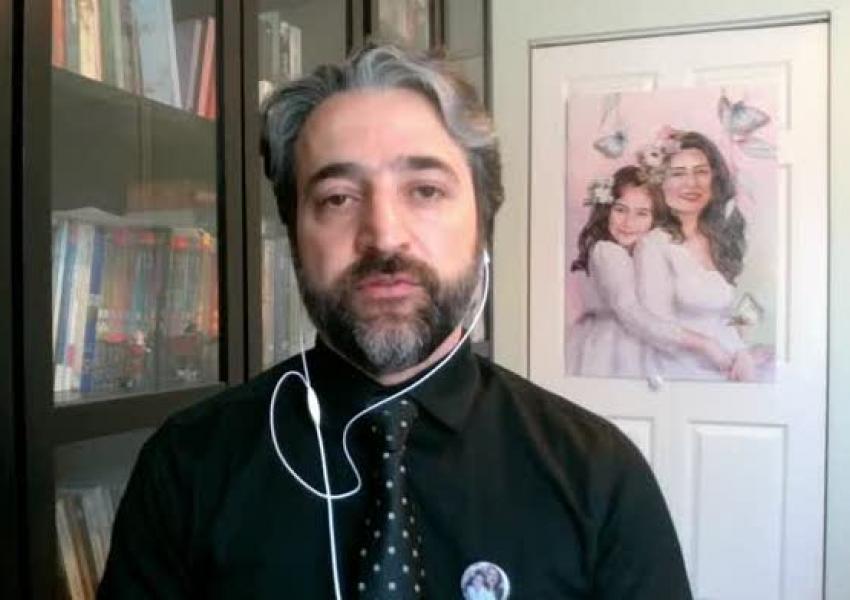
Canada had dozens of citizens and permanent residents aboard the Ukrainian flight downed when an Iranian air-defense battery fired two missiles at the airliner after its take-off from Tehran’s Imam Khomeini Airport on January 8, 2020, at a time of military high alert after Iran fired missiles at US bases in Iraq in retaliation for a US drone strike in Baghdad that killed Iranian general Qasem Soleimani and nine others. Victims’ families condemn Iran’s government for not shutting down the airspace at a time of military tension.
All 176 people on board Ukrainian flight PS752 died. Iran initially denied it had shot down the plane, and then explained it as the result of the misalignments of a mobile missile battery. Tehran’s offer of $150,000 compensation has been dismissed by many relatives of victims.
The march in Toronto coincided with the inauguration of President Ebrahim Raisi (Raeesi) in Tehran. In his speech, Esmaeilion accused Raisi of “direct involvement” in the downing of the plane. He also named − either for such involvement or for harassing victim’s families − President Hassan Rouhani, Secretary of the Supreme National Security Council Ali Shamkhani, Foreign Minister Mohammad Javad Zarif, the Revolutionary Guards (IRGC) Commander Hossein Salami, the Chief of Armed Forces' Joint Staff Mohammad Bagheri, police chief Hossein Ashtari, and Intelligence Minister Mahmoud Alavi.
Esmaeilion also said those named had concealed the responsibility of the IRGC for shooting down the plane, although it was the IRGC airforce commander Amir-Ali Hajizadeh who, on January 11, gave a press conference issuing an apology and giving an account of how the plane had been shot down.
Esmaeilion demanded that Canada sanction those he had named. "Why aren't the names of Raisi, Shamkhani, Salami, Bagheri, Zarif and Khamenei in Canada's list of sanctioned individuals? Why isn't the IRGC on the list of terrorist organizations? Isn't 43 years [since the 1979 Revolution] of crimes and murders enough?”
In a report for the Canadian government in December 2020 Ralph Goodale, an advisor to the prime minister, said that engagement with Iran was “fraught” due to Iran being identified by Canadian law “as a state supporter of terrorism” and by the ‘terrorism listings’ of “the Quds Force of Iran’s Islamic Revolutionary Guard Corps (IRGC) and several other surrogates.”
In February 2020, some of victims' families filed a class action claim in the Ontario Superior Court of Justice against Iran, Supreme Leader Ali Khamenei, and various branches of the Iranian military. The court ruled in May 2021 that the shooting down of Flight PS752 was “an intentional act of terrorism.” It was a default judgement as Iran refused to acknowledge the court's jurisdiction over the matter and was not represented.


